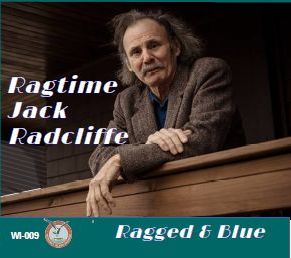

|
|
Click here to listen to Wepecket Radio for free!![]()
Liner notes for:
Click here to order the CD
About the music1. Long, Tall Mama (Alger "Texas" Alexander) C Everybody from Smokey Hogg to Barbecue Bob to Pink Anderson to Bill Broonzy played one version of this or another. The fun for me is recreating a piano accompaniment that mimics a guitar style that mimics a piano employed by all of those guitar slingers. It starts out as a simple boogie, ala Albert Ammons, but I steal some right hand chops from James P. "Pete" Johnson, as well. 2. Ragged & Blue (John G. Radcliffe) Gm Well, I needed a title track, and it needed to be a bluesy rag or a ragged blues. This is what rolled off my fingers. 3. Built Right On the Ground (Blind Teddy Darby) C Several of my musical friends have recorded this, but none has used the piano as the primary accompaniment. I hope I bring it something fresh in this version. I first heard it played by Larry Johnson, but I love the treatment Andy Cohen gives it on his eponymous Earwig recording. 4. Police Dog Blues (Arthur "Blind" Blake) G Of all the finger-pickers, Blake's was the strongest thumb, and he was the very best at "piano-style" ragtime picking. I tried to expand on the theme of his bass line in my left hand on this. I also love the lyrics. This was no woman to trifle with. 5. Sandy's Rag (John G. Radcliffe) F Sandy is my strongest ally, my best friend, and biggest supporter of my music. The least I could do for her was write a tune in her honor. The trio section is a lift from China Boy, by the way. The body of the song is in F, but the trio moves to Ab, employing the New Orleans Jazz change of the tonic diminished followed by the dominant 7th to return to the original key. 6. How Long Blues (Leroy Carr) G Leroy and Scrapper Blackwell shared singing duties in the early part of their career, but Leroy's cover of Midnight Hour Blues propelled him to stardom … and relegated Scrapper to the role of guitar accompanist. They recorded this one in 1928. Shortly after their last session together, in 1935, Carr died of complications from alcohol abuse. Blackwell went on to make a few recordings in the late '50s and into the '60s, and was shot and killed during a mugging in 1962. The murder remains unsolved. 7. Newport Getaway (John G. Radcliffe) C I wrote Newport Stomp for my seven-piece band in 1972. I figured it was time I wrote another piece in honor of the City by the Sea. I borrowed the idiom from Joe Sullivan, who wrote the music to Little Rock Getaway back in 1938. It's a simple AABB pattern, with the melody line inverted in each repeat. As for the left hand: Thank you, James P.! 8. Don't Sell It, Don't Give It Away (Oscar Woods) G Well, you know what "it" is. Woods was an East Texas/Louisiana street musician who played slide guitar. He also has the distinction of having recorded a session with sometime Louisiana Governor Jimmie Davis. The changes are fun to play, as well, as it rides from the fourth to the flat sixth on the repeat, and then uses the flat sixth again for the turnaround. 9. Lonesome Blues (Samantha Parton) D Samantha is part of the Be Good Tanyas, a Canadian trio of women who do wonderful justice to traditional American music. Parton absolutely gets the elegance of simplicity in this tune, with just enough concrete images thrown in to help the listener draw a detailed picture of heartache. "Three chords and the truth" … and a blues in ¾ time! 10. Easy Winners (Scott Joplin) G You can hardly do a ragtime record and not have a Joplin rag on it. This is one of my favorites. I sculptured in the chromatic runs on the B section, but most of it is as the master put it together. Okay, I embellished the trio part as well, but just a little. 11. Dink's Song (Traditional) G I've given up trying to properly ascribe authorship of this one. Bill Broonzy includes it among many other claims, many of which have are questionable. I learned it from the late Barbara Carns, who probably learned it from either Dave Van Ronk or Kate and Anna McGarrigle. John and Alan Lomax were the first to get it on paper. My guess is it's a lot older than any of those people. 12. Tipitina (Henry Roeland Byrd a/k/a Professor Longhair) G Blues gone Cajun. Nuthin' to it, except the deceptively difficult trick of making a slow tune swing. 13. Hungry Blues (Langston Hughes & James P. Johnson) Bb The Poet Laureate of Harlem (Hughes) joined forces with the Godfather of Stride Piano (Johnson) to craft this elegant hymn. It's not, strictly speaking, a blues, the entire song running over a 32-bar non-repeating chord structure. 14. A Porter's Love Song (Andy Razaf) C His name was originally Andreamentina Razefinkeriefo, and his grandmother was the Queen of Madagascar. He wrote the words to Fats Waller's music, as well. If you want to hear the rest of the tale, you'll have to come to one of my live performances. I usually close with this song, and love to share the story to introduce it. Tracks & Times1. Long Tall Mama 2:41 Credits'Ragtime' Jack Radcliffe: piano and vocals |
--------------------------------------------------------  © Copyright 2003-, Wepecket Island Records, Inc. All rights reserved. Host your web site with IPOWER! |













 Jack at work
Jack at work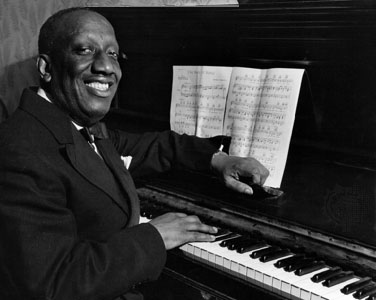 James P. Johnson
James P. Johnson Andy Razaf
Andy Razaf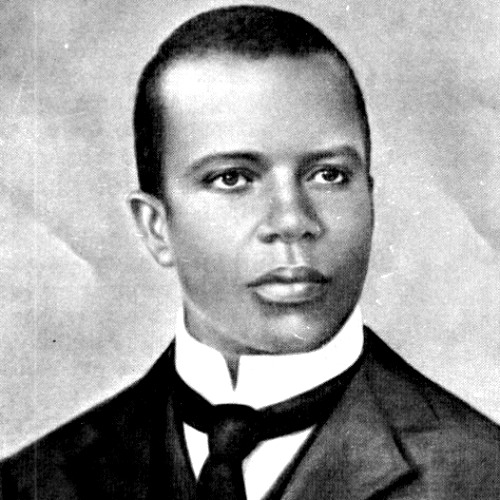 Scott Joplin
Scott Joplin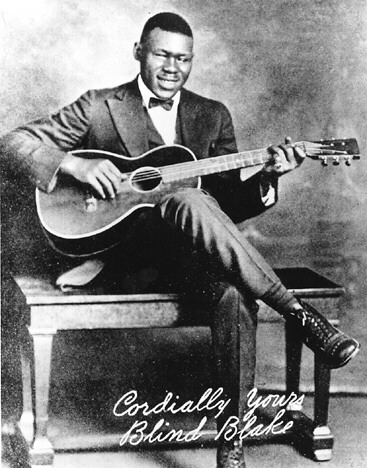 Blind Blake
Blind Blake Leroy Carr
Leroy Carr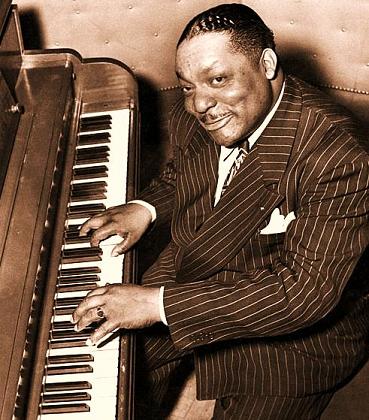 Albert Ammons
Albert Ammons Professor Longhair
Professor Longhair

